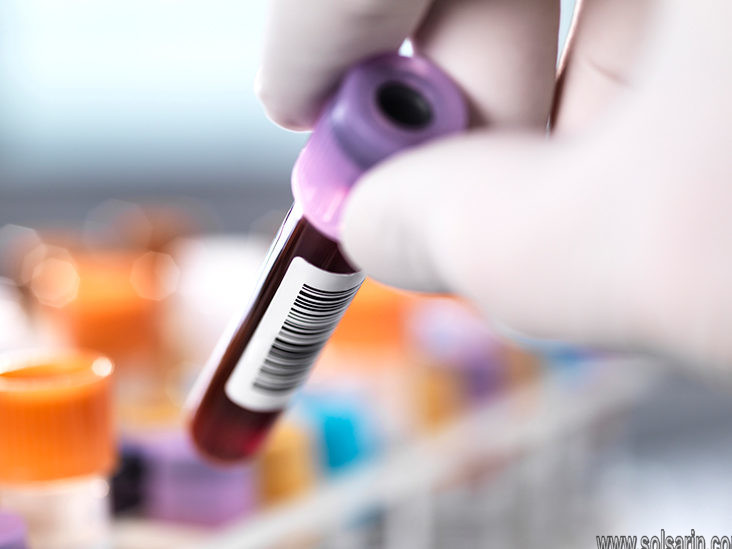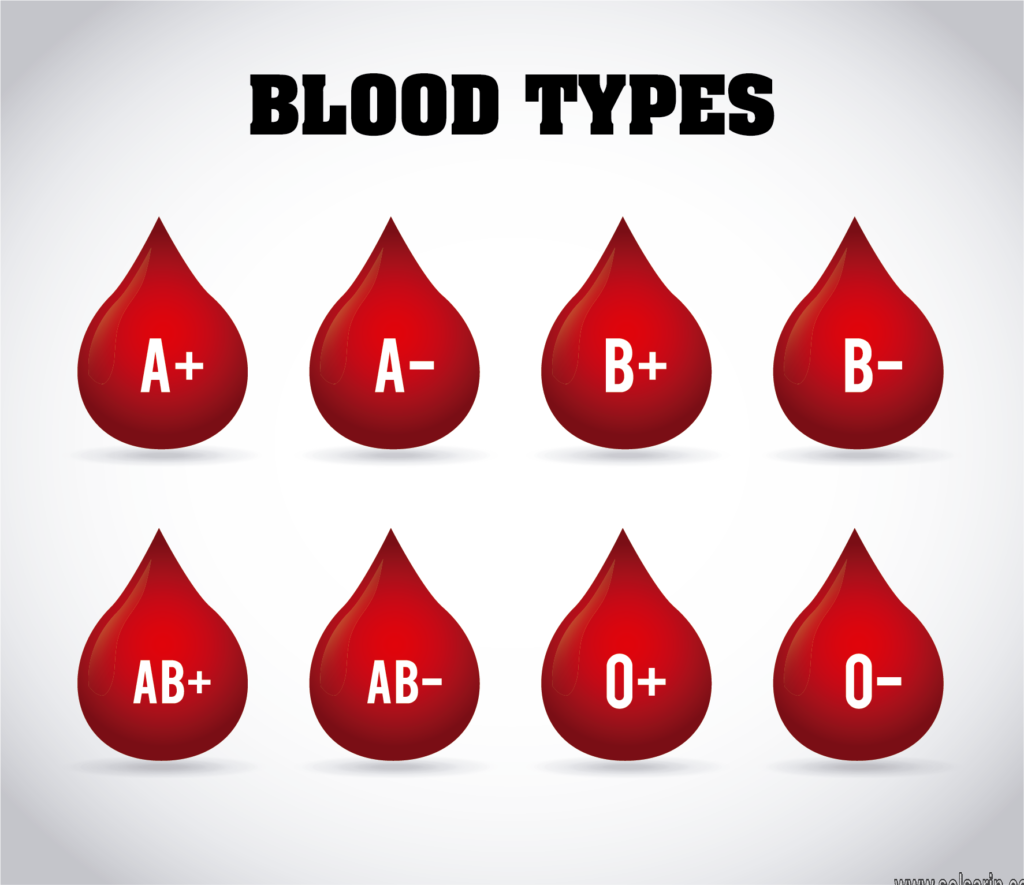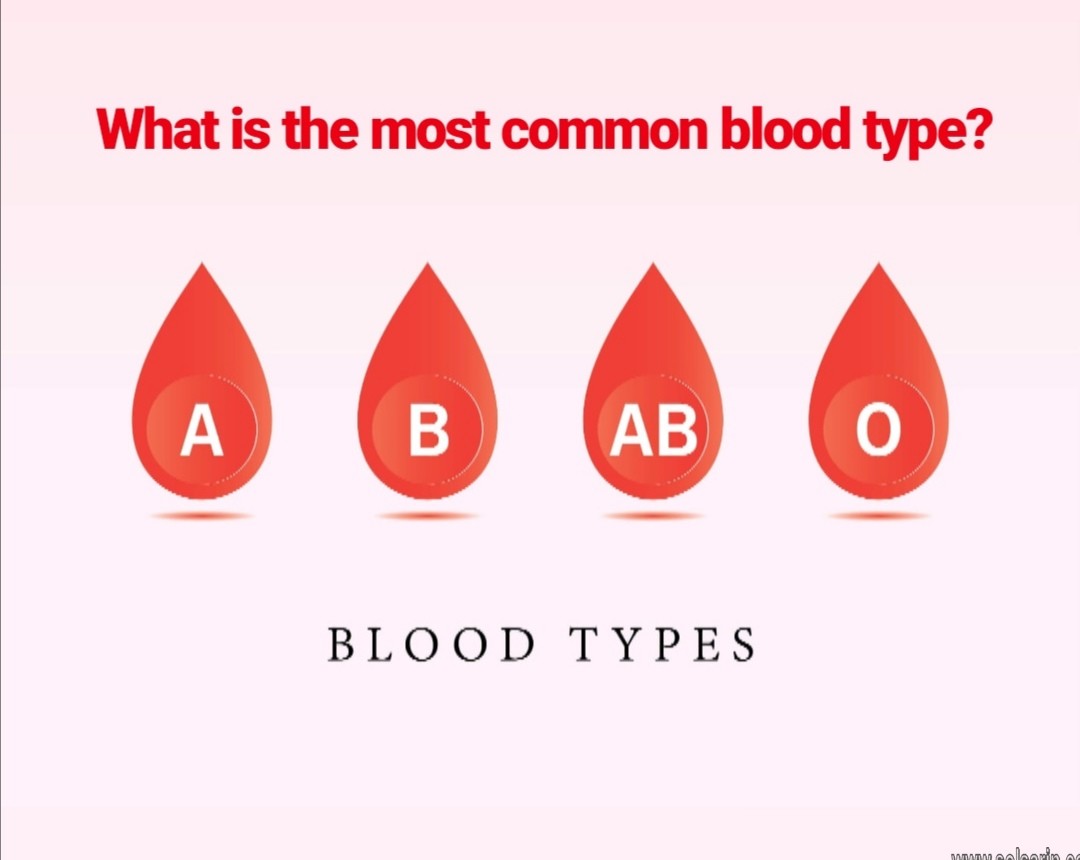what is the most common blood type?
Hi,welcome to solsarin site,today we want to talk about“what is the most common blood type”,
thank you for choosing us.
what is the most common blood type?
There are eight different blood types and each one holds a unique power to save lives.
But the most common blood type is O+, accounting for more than a third of all people (37%). This means there is a higher demand for this blood type when it comes to blood transfusions.
This is an average distribution of the blood types in the United States. The distribution may be different for specific ethnic groups:
| Blood Group / RH Status | Percentage |
|---|---|
| O Positive (O +) | 38 % |
| O Negative (O -) | 7 % |
| A Positive (A +) | 34 % |
| A Negative (A -) | 6 % |
| B Positive (B +) | 9 % |
| B Negative (B -) | 2 % |
| AB Positive (AB +) | 3 % |
| AB Negative (AB -) | 1 % |


What are blood types?
A person’s blood type, also known as their blood group, is the chemical structure on the outside of their red blood cells. The chemicals on the outside of the blood cells are called antigens.
Someone’s blood type is decided by the genes they inherit from their parents. Different blood types do not mix.
A blood test is done to find out the blood type before a blood transfusion, major surgery or having a baby. This is because it is very dangerous if you are given the wrong blood type. If someone receives blood with the wrong sort of chemicals, the body’s immune system could attack it. It is also possible for a mother and her baby to have incompatible blood types, and this will need treatment while the mother is pregnant.
If you need a blood transfusion and you do not know your blood type, or your blood type is not available, then there are other blood types that can be safely given to anyone.
Why are there different blood types?
There is evidence that the different blood types have evolved over millions of years, with type A being the most ancient.
The difference between the various blood types comes down to sugars that cover the surface of red blood cells. These sugars can be misinterpreted as foreign invaders by the body’s immune system when they don’t match up correctly, making a mismatched blood transfusion potentially deadly.
For this reason, it is extremely important to find a compatible blood match for transfusion patients. With O+ being the most common blood type, having an available blood supply is critical.


Blood Types
O-, O+
Patients with any blood type can receive O negative blood. Type O blood is required and must be available in inventory for newborn babies and emergency patients. O+ is the most frequently occurring blood type and is found in 37 percent of the population. O- is found in six percent of the population.
A+
This blood is the second most frequently occurring blood type. Thirty-four of every 100 people have A+.
A-, B+, B-
These are rare blood types and less than 10 percent of the population have this blood type.
AB+
This blood type is acknowledged to be the “universal recipient” because AB+ people can accept red blood cells from any other blood type. In the United States, less than four percent have this type of blood.
AB-
This is the least common blood type in America because less than 1% of the population in the United States have AB negative blood. Patients who have AB negative blood can receive red blood cells from all negative blood types.
Which blood types are compatible?
You can receive blood from a donor with the same blood type as you.
You can also receive blood from a donor with a compatible blood type.
Similarly, a person with a different blood type to you may be able to safely receive your blood.
O negative blood is known as the universal blood type because it is safe for everyone to receive O negative red cells.


How blood type is determined
Like eye color, blood type is genetically inherited from your parents. Whether your blood group is type A, B, AB or O is based on the blood types of your mother and father. For instance, if your mum is AB and your dad is A, you can expect to be A, B, or AB. If mum is AB and dad is O, the child will have an A or B blood type. When both parents are A, the child will have either O or A.
How do blood types work?
Your blood group is inherited from genes passed on by your parents.
The two most important blood group systems for transfusion are ABO and Rh.
The ABO group system gives the letter part of your blood type and Rh system gives the positive or negative part.
Rh system
Red blood cells may have another antigen called the Rh antigen on their surface. If it is present, the blood group is Rh-positive, but if it is absent, the blood group is Rh-negative.
Combining these two characteristics yields the eight most common blood types. Most people have one of these types:
- O-positive
- O-negative
- A-positive
- A-negative
- B-positive
- B-negative
- AB-positive
- AB-negative
The genes that a person inherits from their parents determine the mix of antigens and proteins in their blood. Due to this genetic factor, the American Red Cross suggest that when people need blood, especially those with rare blood types, the best matches tend to come from people of the same race or ethnic background.
Inherited characteristics, such as blood types, tend to run in ethnic groups. To increase the likelihood of well-matched blood types, experts recommend matching donors and recipients along ethnic lines, particularly for rare blood types. For this reason, some blood centers collect ethnic information from blood donors.
For some conditions, such as thalassemia and sickle cell disease, this matching is even more important because these conditions are more common among certain ethnic communities, and people may need frequent transfusions.
only 2% of donors have a rare subtype of blood that doctors often use to treat sickle cell disease, but demand for it is increasing by 10–15% each year. The rarity of and demand for this type of blood emphasize the importance of blood donors.
How do I find out my blood type?
There are three ways you can find out your blood type.
- Your healthcare provider can order a blood type test.
- You can donate blood. A typing test will be done and the results sent to you.
- You can purchase an at-home blood typing test. These tests usually involve pricking your finger and putting a drop of blood on a chemically treated card that looks for antigens and the Rh factor. You then match what you see on the card to a provided guide. Other tests may involve a saliva sample.
These tests aren’t foolproof, though. “There are certain scenarios in which we find discrepancies in our blood typing,” says Dr. Sharma. “This can occur in a person with a blood cancer, for example, or in someone who has had a recent blood transfusion or stem cell transplant.”


Why blood type matters
Your immune system naturally contains protective substances called antibodies. These help fight off material your immune system doesn’t recognize. Usually, they attack viruses and bacteria.
However, antibodies can also attack antigens that aren’t in your natural blood type. For example, if you have type B blood mixed with type A blood during a transfusion, your antibodies will destroy the A antigens. This can have life-threatening results, which is why medical centers worldwide have strict procedures to keep this from happening.
Keep in mind that blood types don’t always need to be an exact match to be compatible. For example, AB blood has both the A and B antigens, so a person with this type of blood can receive either type A or B blood. Everyone can receive type O blood because it doesn’t contain any antigens. This is why people with type O blood are considered “universal donors.” However, people with type O blood can receive only type O blood.
When it comes to the Rh factor, people with Rh-positive blood can receive either Rh-positive or Rh-negative blood, while people with Rh-negative blood can receive only Rh-negative blood. In some cases, a person with Rh-negative blood can carry a child with Rh-positive blood, resulting in a dangerous condition called Rh incompatibility.
What does my blood type say about my health?
Can your blood type make you prone to certain diseases? While some experts say any possible effect blood type plays on health is insignificant at best, others say there’s a valid connection.
“The ABO antigens that make up our blood type are not only expressed on the surface of red blood cells, but they are also present in other human tissues as well,” says Dr. Sharma. “This provides the basis for ABO blood type to have clinical significance for various health outcomes outside the blood system.”
What might some of those health outcomes be? According to Northwestern Medicine, studies show that:
- People with type O blood have the lowest risk of heart disease while people with B and AB have the highest.
- A and AB blood have the highest rates of stomach cancer.
- type A blood can have a harder time than others managing stress because they often produce more of the stress hormone cortisol.
But when it comes to blood type and COVID-19 patients—the disease of the moment—there’s good news. According to a recent study from Harvard Medical School researchers published in the journal Annals of Hematology, blood type has no effect on how sick one becomes with coronavirus (despite initial claims that it might).




